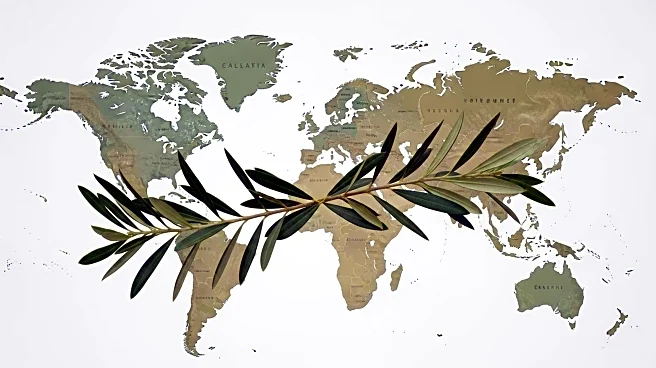What's Happening?
The Jerusalem Post Diplomatic Conference, held in September 2025, brought together key figures to discuss pressing diplomatic issues and future challenges. A significant topic of discussion was the role of Qatar in supporting Hamas, as highlighted by Yousef, the son of a Hamas co-founder. He accused Qatari leaders of complicity in Hamas's actions and called for accountability. The conference served as a platform for dialogue on international relations and the complexities of Middle Eastern politics.
Why It's Important?
The conference underscores the ongoing geopolitical tensions in the Middle East, particularly concerning the influence of external actors like Qatar in regional conflicts. The accusations against Qatar highlight the intricate web of alliances and enmities that shape Middle Eastern diplomacy. This has implications for U.S. foreign policy, as the U.S. seeks to balance its strategic interests in the region with its commitment to combating terrorism. The discussions at the conference could influence future diplomatic strategies and international relations.
What's Next?
The allegations against Qatar may prompt further international scrutiny and diplomatic pressure. Countries involved in Middle Eastern diplomacy, including the U.S., might reassess their relationships and strategies in light of these developments. The conference could lead to increased dialogue and potential policy shifts aimed at addressing the root causes of regional instability and terrorism.
Beyond the Headlines
The conference highlights the ethical and legal challenges of holding state actors accountable for their support of non-state entities like Hamas. It raises questions about international law and the mechanisms available to address state complicity in terrorism. The discussions may also influence public opinion and diplomatic discourse, potentially leading to broader calls for transparency and accountability in international relations.









